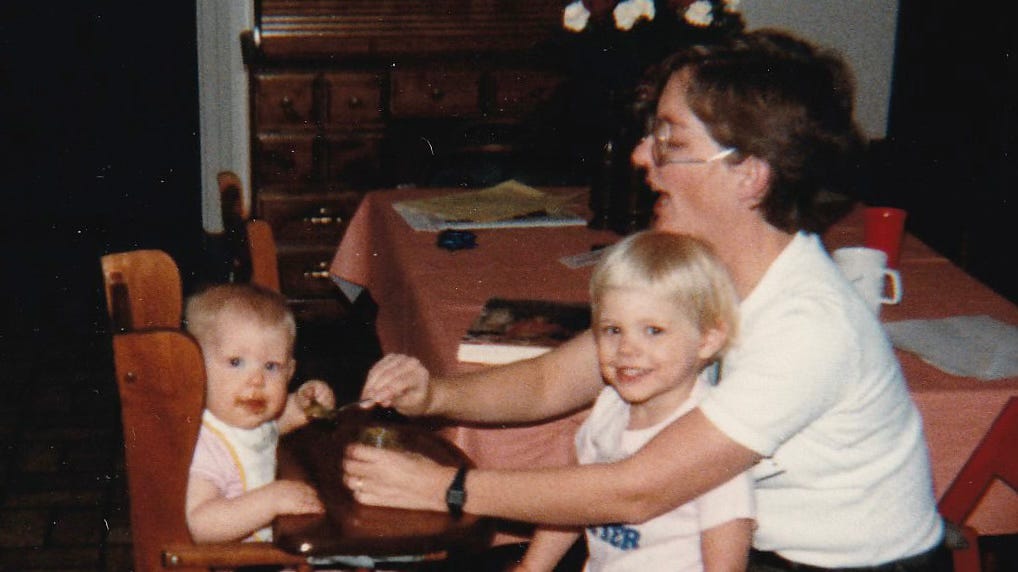Reading in the Vortex of Adulthood
Speculative fiction was there all along.
One would think that after learning to love speculative fiction as a kid, I kept on reading it straight through to today.
Not quite. I grew up and went to college, where required reading took up most of my free time. After I graduated and was on my own, I filled my new free time with hobbies and doing things with friends.
Then I joined the Air Force, where there was, by design, absolutely no time for discretionary reading for the first ninety days. One thing led to another, and I found myself stationed in Germany. There, I fell in love with another American GI. We married right before he was transferred to a remote radar site north of the Arctic Circle in Alaska. While he was busy doing that, I stayed in Germany for a few months, changed career fields from radar operations to intelligence support, and moved to Colorado for technical training. We reunited in Austin, Texas, where we bought a house and settled in. Months into our three-year controlled tour, both of us were transferred to Tucson, Arizona. That was the year the Internal Revenue Service invited us to their office to prove that between us, we had moved three times, bought and sold a house in Texas, and bought a house in Arizona.
Tucson had a great public library system and good bookstores. I started to revisit my favorites. I’d kept up with the books of Anne McCaffrey and Robert Heinlein. My husband brought the books of Poul Anderson, Michael Crichton, and the Larry Niven/Jerry Pournelle duo to our paperback shelves, so I read those, too. Other authors may have included C. J. Cherryh, Katherine Kurtz, and Judith Merril—but that was a long time ago. We were busy, and I really don’t remember. I still enjoy those authors’ work.
As I put this article together, I remembered reading Windhaven by George R. R. Martin and Lisa Tuttle. So, yes, I’ve read and enjoyed George R. R. Martin’s work, even though I keep stalling out in the first few chapters of A Game of Thrones.
Then we had kids. A few years in, we left active duty, my husband started a business, and I went to grad school. Here is a snippet of what life looked like in those times.

Eventually, we settled into new professions. Once I joined the Air Force Reserve too, our already busy life became a blur.
“But you’re a librarian,” I hear you say. “You must read a lot of books!”
Yes and no. Most of us got into the library business because of our love for the written word. But while reading is a popular coffee break and lunchtime activity, we do not get paid to read books. There isn’t time for that.
I did manage to discover a lot of great science fiction and fantasy in the library where I worked. Some of the most memorable authors are David Brin, Lois McMaster Bujold, Octavia Butler, Orson Scott Card, C. J. Cherryh, Mercedes Lackey, Diana Paxson, and Terry Pratchett. I had kids who were just the right age to grow up with J. K. Rowling’s Harry Potter series. While going through the general fiction collection, I found Elizabeth Scarborough’s The Healer’s War—and had a talk with the cataloger who hid it there. Sheer serendipity put Terri Windling’s The Wood Wife right in front of my nose. So many books, so little time.
IMPatiently Waiting to be Published
If you belonged to the CompuServe IMP forum in the mid-1990s, HELLO! My name there was Adrienne III because there were a lot of Adriennes. I’d love to hear from you in the comments below.
At the dawn of the online age, we had CompuServe at home and I joined its IMP forum. If memory serves, IMP was short for “The Informal Association Of Writers IMPatiently Waiting to be Published.” We were a group of aspiring writers, some of whom became published writers while I was active on the forum. Mike Resnick served as the adult in the room. On his recommendation, I tried reading Connie Willis’s books and loved them. The IMP forum was great fun and I learned a lot about writing. Eventually, though, I left the IMP forum because online discussion and surfing other people’s work was much more fun than finishing my own stories.
I’ve found no recent postings online about the IMPs. If you belonged to the CompuServe IMP forum in the mid-’1990s, HELLO! My name there was Adrienne III because there were a lot of Adriennes. I’d love to hear from you in the comments below.
I recently stopped kicking myself for not finishing stories back then. On top of having a family, a full-time job, and a military reserve career, my Air Force Reserve unit deployed frequently. The military exercise scenarios that had become my primary fiction output dwindled in favor of real-world pilot debriefs, situation reports, and briefings of all kinds.
Military deployments notwithstanding, my library career was still there. At one American Library Association meeting, I sat through a panel discussion featuring Michael Flynn, Charles Sheffield, and Nancy Kress. Of course I bought their books and had them autographed.
Plenty of big names and extraordinary yet lesser-known names are missing from this list. That’s partly because there are so many; only the biggest stand out in my very human memory. The other reason is that although librarians see the bestsellers coming through, we have to place holds on them just like everybody else. And by the time our hold on the bestseller everyone wanted last month has been fulfilled, we have moved on to the stack of books we found on the shelves.

